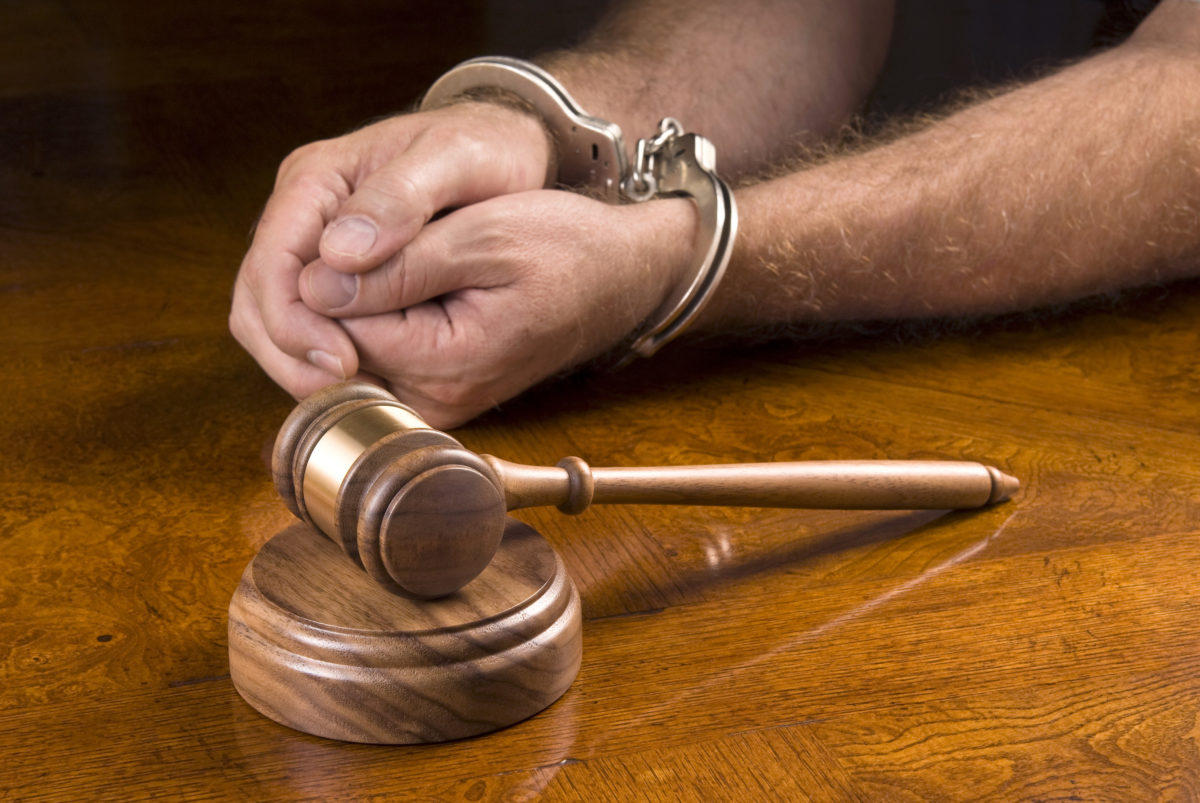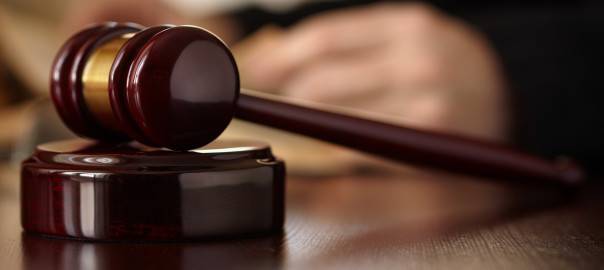10 Steps You Need to Take if You are Charged with a Felony
Regardless of what crime you are charged with, a felony is an extremely serious matter. If you are convicted of a felony, you are likely facing prison time, fines, and penalties that will punish you well after you have served your time.
To have a chance to avoid these serious felony consequences, you need to take the proper steps from stage one of your case. Here are the steps you need to take if you are facing a felony charge in California:
1. Exercise Your Right to Remain Silent
You have probably heard the words, “You have the right to remain silent…” in dozens of movies and TV shows about cops and the criminal justice system. But your right to remain silent is not something that is just made up because it sounds good on TV.
The Fifth Amendment gives all of us the right to refuse to incriminate ourselves in a criminal case. The easiest way to avoid incriminating yourself is to remain silent.
If you find yourself in custody, refuse to answer any questions and politely insist that you will not answer anything without a lawyer present. You do not need to act hostile toward the police in order to exercise your right to remain silent. Politely tell police that you are choosing to exercise your Fifth Amendment rights.
2. Remain Calm and Polite
This might be one of the most difficult ideas to remember, especially if you believe you are innocent or do not know why the police are questioning you. Being questioned by authorities, who are often aggressive, can be frustrating and scary.
However, even if you believe you have been wrongfully arrested and that your rights have been violated, do not resist arrest or attempt to argue with police officers. Resisting will make you appear guilty and could result in additional charges being filed against you.
3. Contact an Attorney Immediately

The single most crucial step in the process of defending yourself against a felony charge is to contact an attorney. Every moment you spend in custody without an attorney fighting for you hurts your case.
It is extremely important for you to hire a criminal defense attorney the moment you are accused of a crime.
The prosecutor will know all the technicalities of the law that you may not know, and most of all, they will know how to sell you on agreeing to a plea bargain that will seem like your best option. Having your own attorney will even the playing field, and allow you to avoid taking what seems like an easy deal when it is likely not in your best interest.
Additionally, your attorney can help you understand and exercise your rights so that you do not set yourself up for an easy conviction. The police and prosecutors will be working against you; you need someone with experience on your side fighting for your freedom.
4. Know What Felony Offense You are Facing
Most people do not realize the difference between a misdemeanor and a felony. That means they often do not understand the severity of the crime they are accused of and the harsh potential consequences they face if convicted of a felony.
Generally, a misdemeanor is punished by time in county jail, a fine or both. A felony carries more severe potential penalties, including a prison or county jail sentence. In addition, you may have to pay restitution to the victim of the crime.
You could also lose certain rights once you are released from prison if you are convicted of a felony. For instance, you might lose your right to vote and your right to own a firearm. You might be denied the chance to serve in the military or be denied a professional license.
It is important that you understand the specific felony charges that you face and the severity of those charges.
5. Do Not Post Bail Without Speaking to an Attorney
Many people make the mistake of posting bail for a loved one as soon as they have been arrested. This is often a very bad idea, and it is especially bad in a felony case.
You should first speak to an experienced criminal defense attorney who can help you make the best decision as to bail by doing the following:

- Your criminal defense attorney can review the facts of the case and determine whether bail will likely be lowered or possibly have your loved one released without having to post bail.
- Your criminal defense attorney can tell you whether the charges are likely to be dropped at the arraignment. If that were to happen, the accused would be released from custody within two or three days without having to post bail.
- Bail bondsman charge a 10% fee. If you hire a lawyer, you are entitled to a reduction in the bondsman fee from 10% down to 8%. If the bail is $100,000, this is an immediate savings of $2,000 in bail bond fees.
- Your criminal defense attorney may determine that it is not a good idea to bail your loved one out of jail. If it is likely that the judge will raise bail when the defendant appears in court at his arraignment, there would be a good chance that your loved one will be returned to custody. You will not be able to have the bail bond fees you paid returned to you if that were to happen.
The first call that you should make after your arrest is to an experienced criminal defense attorney who can properly guide you through the complicated issue of posting bail. If you speak to a lawyer before you post bail, you could save thousands of dollars.
6. Be Honest with Your Attorney
Your criminal defense attorney will need to know the most accurate information about your case in order to properly prepare for the case and provide with you with the most adequate defense. Therefore, it is imperative that you are 100% honest with your lawyer throughout the entire felony criminal process.
Many people are afraid to speak the truth to their lawyer, which is why you should know that any information you share with your attorney is confidential. Your relationship is protected by attorney-client privilege. If your lawyer chooses to share the details of your case, he or she could face discipline from the state bar, which includes the possibility of losing his or her license to practice law.
Give your attorney an honest, detailed account of what happened. The more accurate information the attorney has, the better prepared he or she will be to give you the best defense possible.
7. Try to Avoid Talking to Your Family and Friends about the Arrest

Unlike conversations with your attorney, those you have with your family and friends are not protected by confidentiality rules. Anything you tell them can potentially be used against you.
However, the rules are a little different when it comes to spouses. The California Rules of Evidence give spouses a certain amount of control over whether they will testify in a case against their spouse.
California Evidence Code Section 970 states: “Except as otherwise provided by statute, a married person has a privilege not to testify against his spouse in any proceeding.” Therefore, the prosecution cannot compel your spouse to testify against you if he or she does not want to do so.
Not only does the law permit your spouse to refuse to testify against you in court, but California Evidence Code Section 980 also protects conversations between spouses, and gives both you and your spouse the right to prevent the other from disclosing what was said during your marriage.
So, while your spouse may be an exception to this law, the best course of action is always to tell your friends and family that you cannot talk about your case until it is finished. This will help you avoid any potential damage to your case.
8. Write Down What You Remember
One of the most imperative things we tell our clients who are accused of felonies to do is to write down the facts of the case immediately.
You will be better able to give your attorney accurate information if it is fresh in your mind, and the best way to ensure that it stays fresh is to write down what you remember about the events surrounding your arrest as soon as possible. Make sure to include where you were and who you were with when the crime took place.
From the moment you are arrested, the prosecution will begin documenting everything it can about you in order to build a case to convict you. That is why you should prepare the most accurate information as possible.
9. Make a List of Witnesses
Around the same time that you write down your statement of the events, you should also write down the names and contact information of any person who could possibly testify favorably on your behalf.
Start by writing down the name of any witnesses who may have seen the alleged crime take place. Your lawyer will be able to follow up with these witnesses to see if their version of the events matches up with yours.
Additionally, you will also want to collect the name and information of anyone who could testify to your good character. These types of witnesses could help your felony attorney show that you are not the type of person who would commit a felony crime.
10. Attend All Court Proceedings
With a few exceptions, a person charged with a misdemeanor may elect to have their attorney make any appearance in court in their place, meaning the defendant can choose not to appear in court. That is not the case if you have been charged with a felony.
California Penal Code section 977(b) requires that for any felony, the defendant must be present for the arraignment, the time of plea, preliminary hearings, any portion of the trial where evidence is presented to the judge or jury, and the imposition of the sentence. The law places the burden on you as the defendant to know when these events are happening, and to be present for them.
Work with your criminal defense lawyer to create a calendar of the hearings involved in your case. Make sure you set yourself reminders and alarms so that you do not miss these court dates. Failure to appear in court as scheduled not only makes you look bad for your felony case, but it also could result in a warrant being issued for your arrest.
Call the Attorneys at Wallin & Klarich if You are Charged with a Felony

A felony charge is a serious accusation with potentially life-changing consequences. If you or someone you care about has been charged with a felony, you will need an experienced and aggressive attorney to help you in your case. At Wallin & Klarich, our attorneys have been successfully defending clients facing misdemeanor and felony charges for more than 40 years. We’ve helped thousands of clients in their time of legal need. Let us help you, too.
With offices in Orange County, Riverside, San Bernardino, Victorville, West Covina, Torrance, Los Angeles and San Diego, there is an experienced Wallin & Klarich criminal defense attorney near you no matter where you work or live.
Call us today at (877) 4-NO-JAIL or (877) 466-5245 for a free phone consultation. We will be there when you call.



